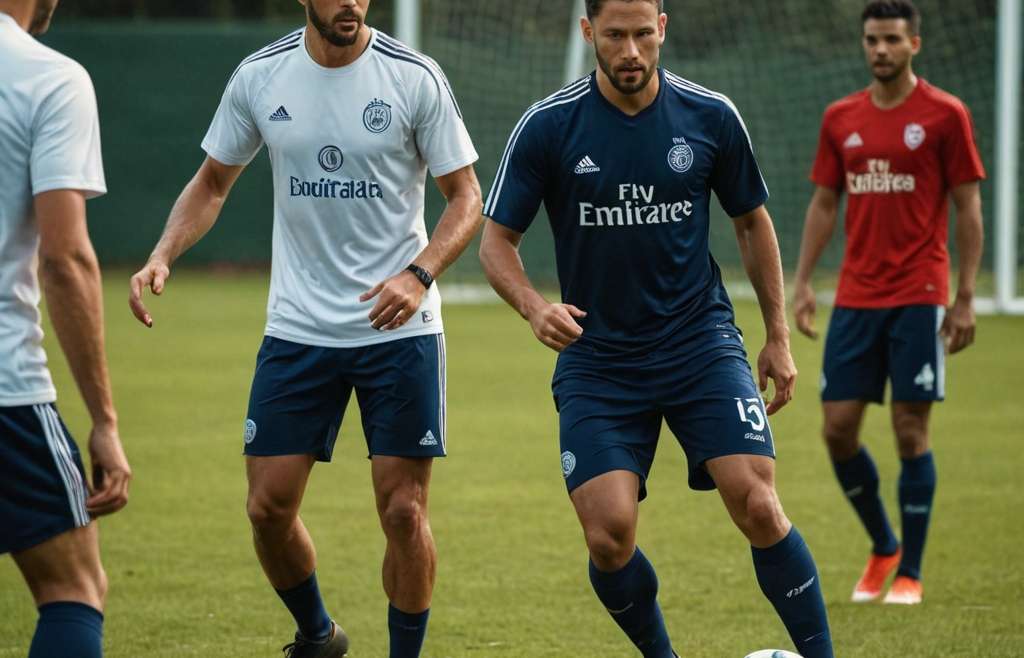In modern football, coaches are no longer faced with the challenge of honing the technical-tactical skills of their players; the real revolution lies in understanding and addressing the individual characteristics of each athlete. In this context, the Pons Method emerges as a comprehensive solution that advocates three key pillars: gamification, personalization and humanization of the training process.
Gamification: Learning by Playing
Gamification, one of the pillars of the Pons Method, consists of transforming training into a playful process that captures the player’s attention and intrinsic motivation. Instead of repetitive and monotonous sessions, the Pons Method, thanks to its innovative Principle of collective individualization, incorporates game dynamics that challenge footballers to solve problems in real time, simulating high-pressure match situations. This not only enhances physical, technical-tactical and psychological learning, but also increases the enjoyment, involvement and competitiveness of players, stimulating their cognitive and technical development.
In a world where new generations are highly influenced by immediate rewards and video game dynamics, this approach aligns with modern training trends, helping players internalize complex concepts more quickly and effectively, leading to a new approach to modern training that will also result in less absenteeism.
Personalization: Every Player, a World.
The second pillar of the Pons Method is the personalization of training. This approach recognizes that each player has their own set of skills, weaknesses and emotional needs. Instead of applying a “one size fits all” model, the Pons Method works to create individualized programs that address the specificities of each player.
Personalization goes beyond the physical and technical aspects thanks to its Collective Individualization Principle. It is about holistic training that understands that supposed weaknesses – such as anxiety, lack of confidence or nervousness – are, in fact, opportunities for personal growth. Thus, coaches do not only teach sports skills, but act as guides who help players develop the skills necessary to overcome internal obstacles and unlock their full potential. To do this, the Pons Method acts as a catalyst for all these strengths.
Humanization: More than Players, People.
Finally, the Pons Method places a strong emphasis on the humanization of training. This approach breaks with the traditional view of players as mere assets of the club and considers them, above all, as people. Humanizing the training process involves approaching the footballer with empathy, understanding and close communication, addressing both their needs on and off the field.
The coach becomes an emotional leader, who not only seeks to improve sporting performance, but also to cultivate more balanced, mentally strong and resilient human beings. This humanistic mindset transforms the locker room into an environment of mutual support and growth, which ultimately benefits not only the player, but the team as a whole.
The New Paradigm of Modern Football
The combination of these three pillars—gamification, personalization and humanization—marks a new paradigm in modern football. Success in sport is no longer measured solely by trophies or victories on the field, but also by the ability to develop players who can manage their emotions, adapt to adverse situations and grow as people. The Pons Method exemplifies this modern vision of football, positioning coaches as integral leaders who influence not only the physical, but also the mental and emotional aspects of their players.
Editorial argument for Diario AS:
This article is essential for modern football training, as it aligns the methodological advances of the Pons Method with current trends that prioritize the complete training of the athlete. In an era where mental health and personal development are key issues in high-performance sport, the Pons Method is presented as a cutting-edge solution that not only optimizes physical performance, but also forms more complete human beings. Publishing this content in Diario AS will position the newspaper as a reference in the dissemination of new sports methodologies, attracting coaches, clubs and fans interested in the future of football.

